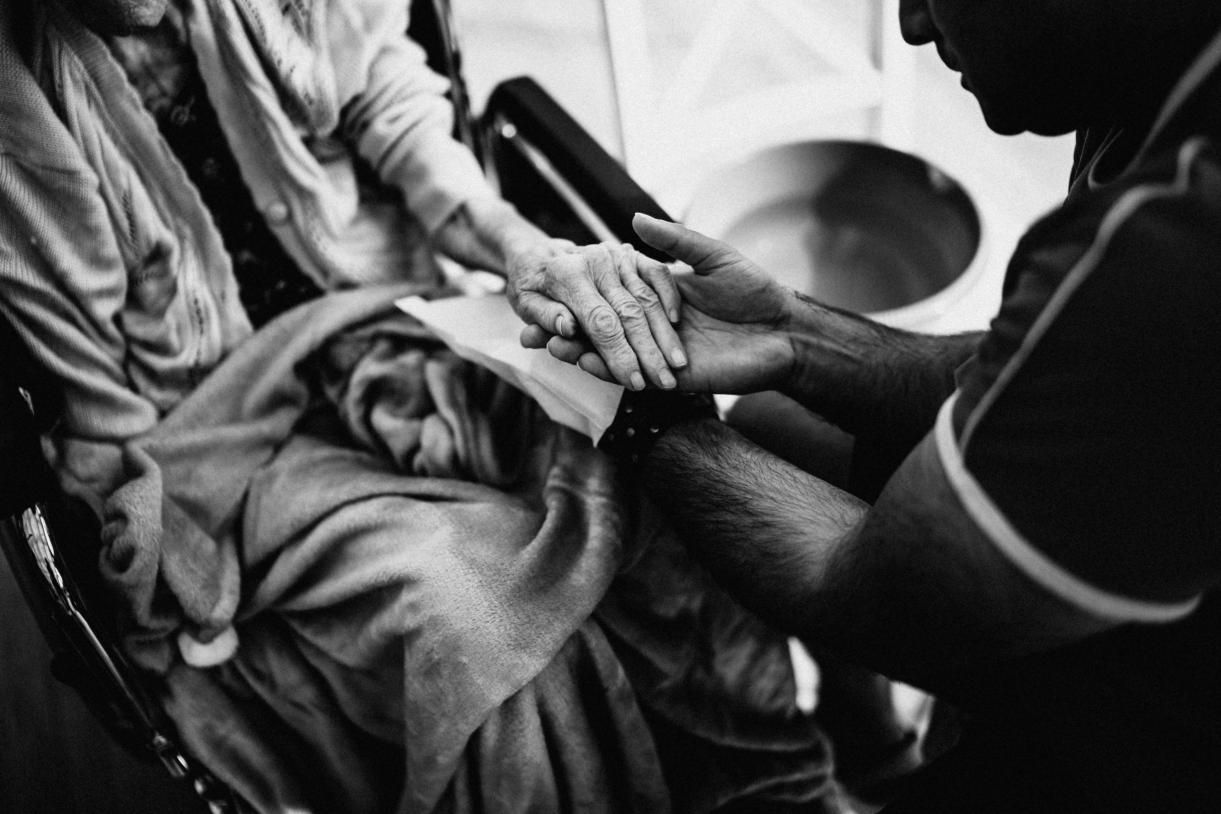
Person-centered care is an evidence-based approach that offers long-lasting benefits to individuals. By recognizing patients as unique individuals with distinct needs and giving them a voice in their well-being, person-centered care not only builds trust between caregivers and recipients but also improves health outcomes. At Project Guardianship, person-centeredness lies at the heart of our mission. We strive to create a world where our clients can thrive with dignity and autonomy in the environments they choose, regardless of disability, socioeconomic background, language, or other factors.
Each year, New Yorkers with cognitive impairment and other disabilities, who lack familial caregivers, rely on the guardianship system to safeguard their health and well-being. When Project Guardianship is appointed as an individual's guardian, we very often assume the role for the rest of their life. Let us consider the case of Annika*, a client who was born in Panama in 1923 and later immigrated to Brooklyn with her husband. As Annika faced hardships as she grew older, she relied on a close friend and neighbor for support. Unfortunately, her living conditions and health continued to deteriorate, leading her to lose her home in 2007. Subsequently, Annika was discharged to a nursing home and Project Guardianship was appointed as her guardian.
Sadly, a decade later, Annika received an unexpected and distressing diagnosis: metastatic ovarian cancer, which presented challenges due to her age and comorbidities. As Annika's medical decision-maker, we consulted with her, her friends, and her care team to determine the most suitable option—one that would ensure her comfort and align with her religious and personal beliefs. Fortunately, the nursing home where Annika resided had an established palliative care team in place, offering pain and symptom management. This care enabled Annika to spend her final days free of pain and avoiding hospitalization. With the support of the palliative care team, Annika was able to die with dignity in the place she considered home.
Many individuals are denied the opportunity for a "good death,” receiving costly, institutionalized care that fails to prioritize autonomy and dignity. Palliative care, which provides specialized medical care aligned with the wishes of those with serious illnesses, can help individuals avoid hospital admissions and maintain connections with home- and community-based social services. However, palliative care remains a limited resource. Data consistently shows that a significant majority of patients wish to die at home. Yet, according to a 2023 study involving nearly 150,000 Medicare recipients, 25 percent of community dwellers and almost 40 percent of nursing home residents died in hospitals, with the majority receiving aggressive and costly treatments in their final 30 days. Additional data reveals that introducing palliative care shortly after diagnosis improved the quality of life and reduced depression in patients with metastatic cancer. That is why for years, our organization has advocated for the right of individuals with legal guardians to not only live but die with dignity, with access to person-centered services like palliative care.
Recently, our staff received training from the Doula Program, a nonprofit organization based in New York City that trains volunteer doulas to provide companionship and comfort to individuals isolated by life-limiting diseases. These doulas are referred by someone involved in the care of the aging individual and serve as the point of contact for any changes or emergencies. The Doula Program serves low-resourced clients who lack a support system of family or friends. They match doulas with clients based not only on location but also on shared interests and preferred language. These volunteer doulas visit their clients once a week and may support them anywhere from six months to six years. They often become the sole consistent visitor in the lives of their clients, offering emotional support without a medical agenda. Services like these have the potential to enhance dignity and promote patient satisfaction, particularly in difficult and highly emotional situations.
While palliative care and its various forms prioritize the needs of the individual, institutionalized care often lacks this focus due to factors like underfunding, staffing shortages, or profit-driven motives. However, relying solely on a patchwork of community-based services cannot adequately meet the needs of our expanding aging population. New York must prepare for the impending challenge of providing aging equity for all its residents by investing in a comprehensive continuum of care that prioritizes dignity and autonomy across the lifespan. We urge individuals, legislators, and advocates to explore opportunities to support social services that embrace person-centered care. By doing so, we can bring tenderness and dignity to the end-of-life experience—a critical need for our aging population.
* “Annika” is a pseudonym for a Project Guardianship client [and the photo attached is a stock photo (and not an actual photo of “Annika”). Project Guardianship maintains the privacy and protects the identity of, and all information related to, its clients.
